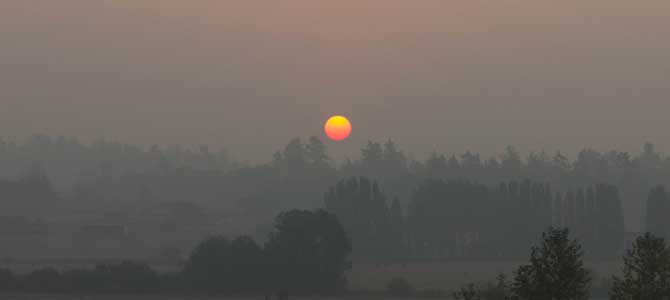
City sites provide relief from wildfire smoke
In response to the air quality advisory issued by Metro Vancouver External website, opens in new tab on October 14 and accumulating smoke, we are activating cleaner air spaces for members of the public looking for relief from wildfire smoke.
- Smoke concentrations can vary widely across the Metro Vancouver region as winds and temperatures shift and wildfire behaviour outside the region changes.
- We have been monitoring air quality closely, and based on the duration that wildfire smoke has been impacting the city, the cumulating health effects and advice from Vancouver Coastal Health, we are activating cleaner air spaces.
- Residents are encouraged to take steps to reduce their exposure to wildfire smoke.
Where to find cleaner air in Vancouver
The following community centres and Vancouver Public Library (VPL) branches offer cleaner air spaces:
- Carnegie Community Centre
- Evelyne Saller Centre
- Gathering Place Community Centre
- Creekside Community Centre
- Hillcrest Community Centre
- Mount Pleasant Community Centre
- West End Community Centre
- VPL – Britannia Branch
- VPL – Central Library
- VPL – Joe Fortes Branch
- VPL – Kerrisdale Branch
- VPL – Mount Pleasant Branch
- VPL – Renfrew Branch
- VPL – Terry Salman Branch
These sites offer indoor spaces high-efficiencyiency particulate air (HEPA) or MERV 13 filtering, which can create cleaner indoor air and support people experiencing health effects from smoky air.
Wildfire smoke is a complex mixture of different air pollutants that can cause mild or severe health effects when inhaled. Groups of people who are at higher risk of experiencing health effects are:
- People with pre-existing chronic conditions such as asthma, COPD, heart disease, and diabetes
- People who are pregnant
- Infants and small children
- Elderly
- People who have been diagnosed with a respiratory infection such as COVID-19
Symptoms caused by wildfire smoke
Wildfire smoke can cause mild symptoms, such as lung irritation, eye irritation, runny nose, sore throat, headaches, or mild cough. These symptoms are signs to reduce your exposure to wildfire smoke and can generally be managed without medical attention.
Some people may experience more severe symptoms and should seek prompt medical attention. Call 8-1-1, visit a walk-in clinic, or call 9-1-1 in an emergency, if you are experiencing:
- Shortness of breath
- Chest discomfort
- Heart palpitations
- Dizziness
- Severe cough
- Wheezing
Stay up-to-date on air quality External website, opens in new tab